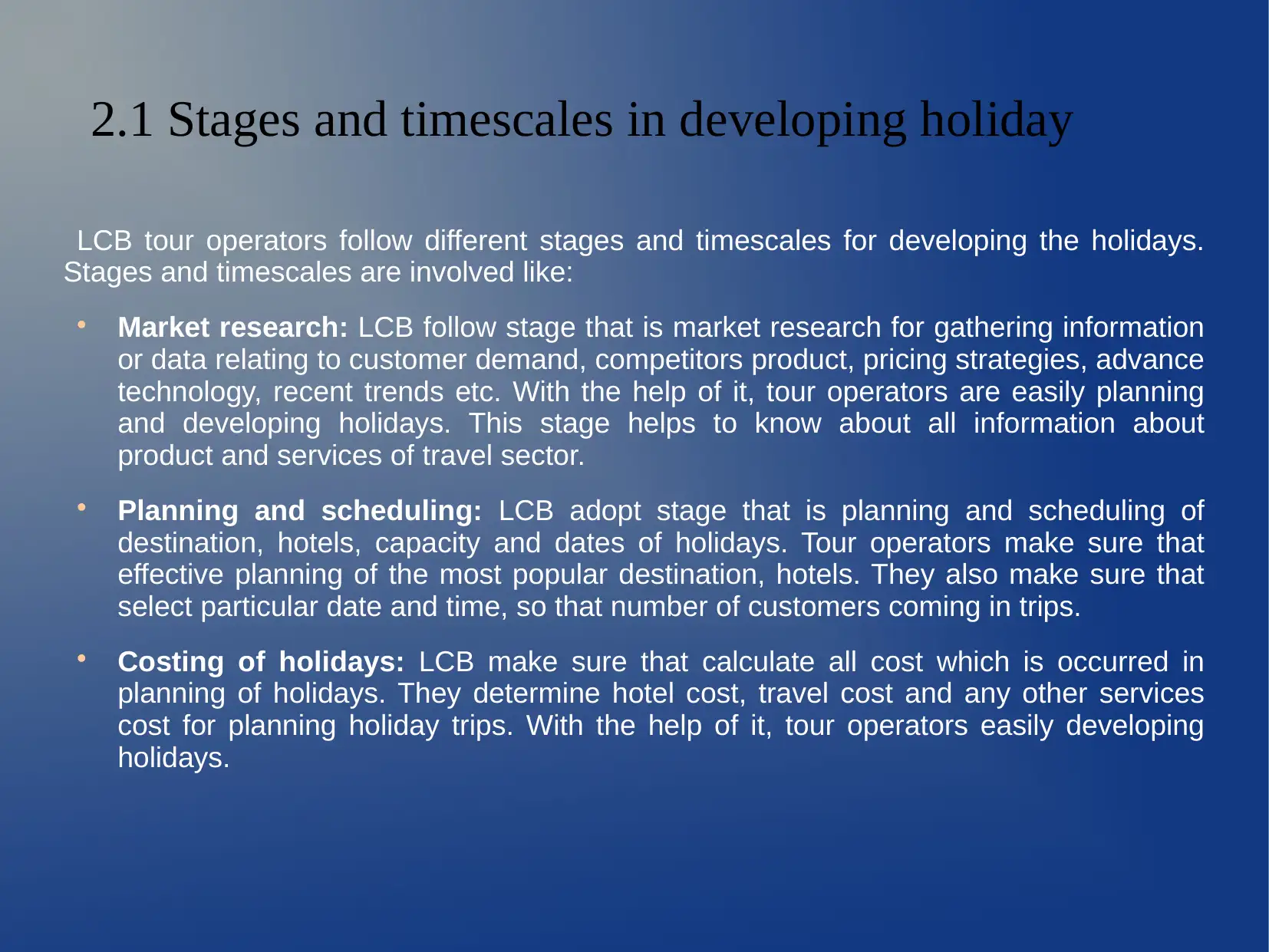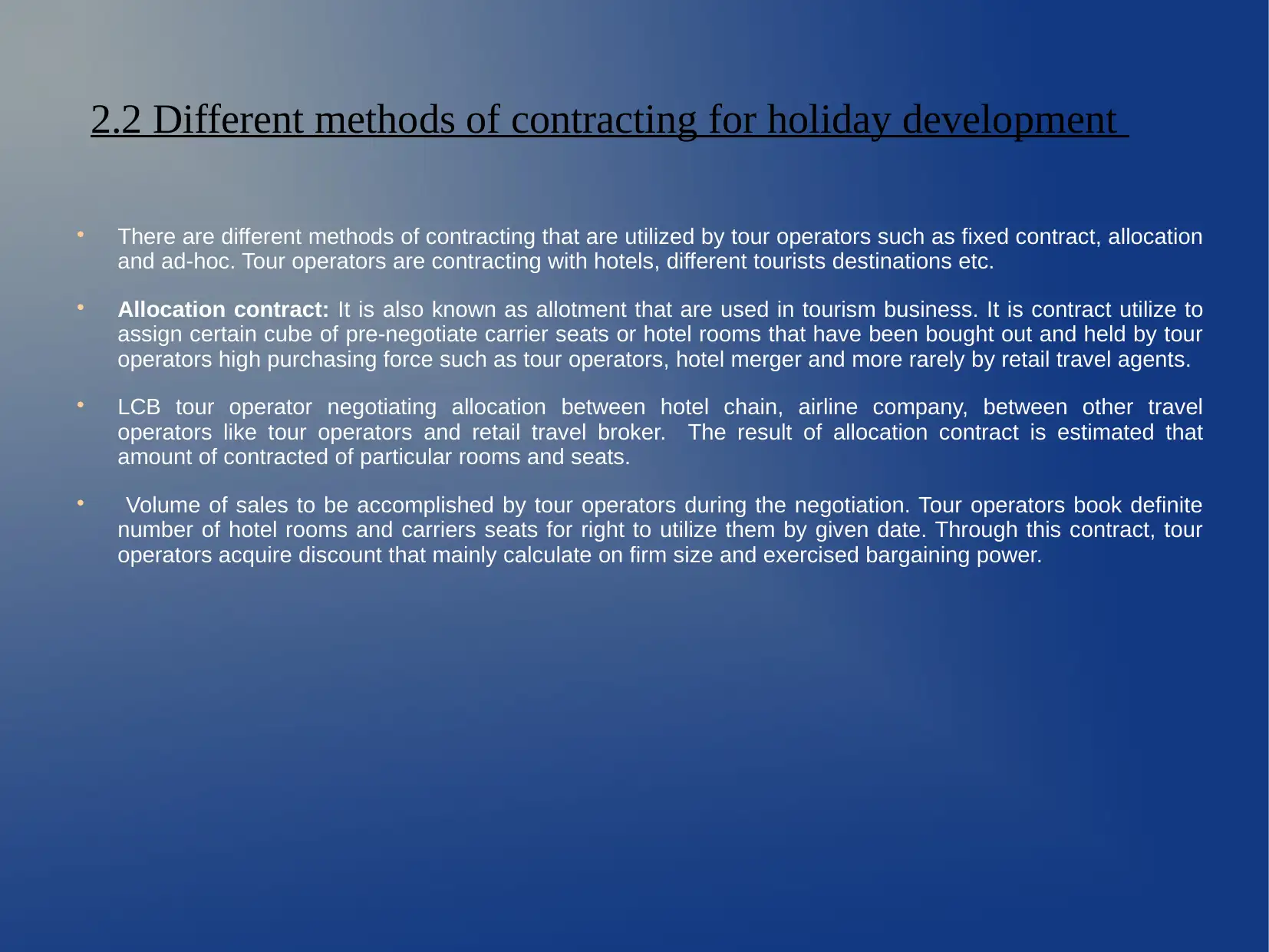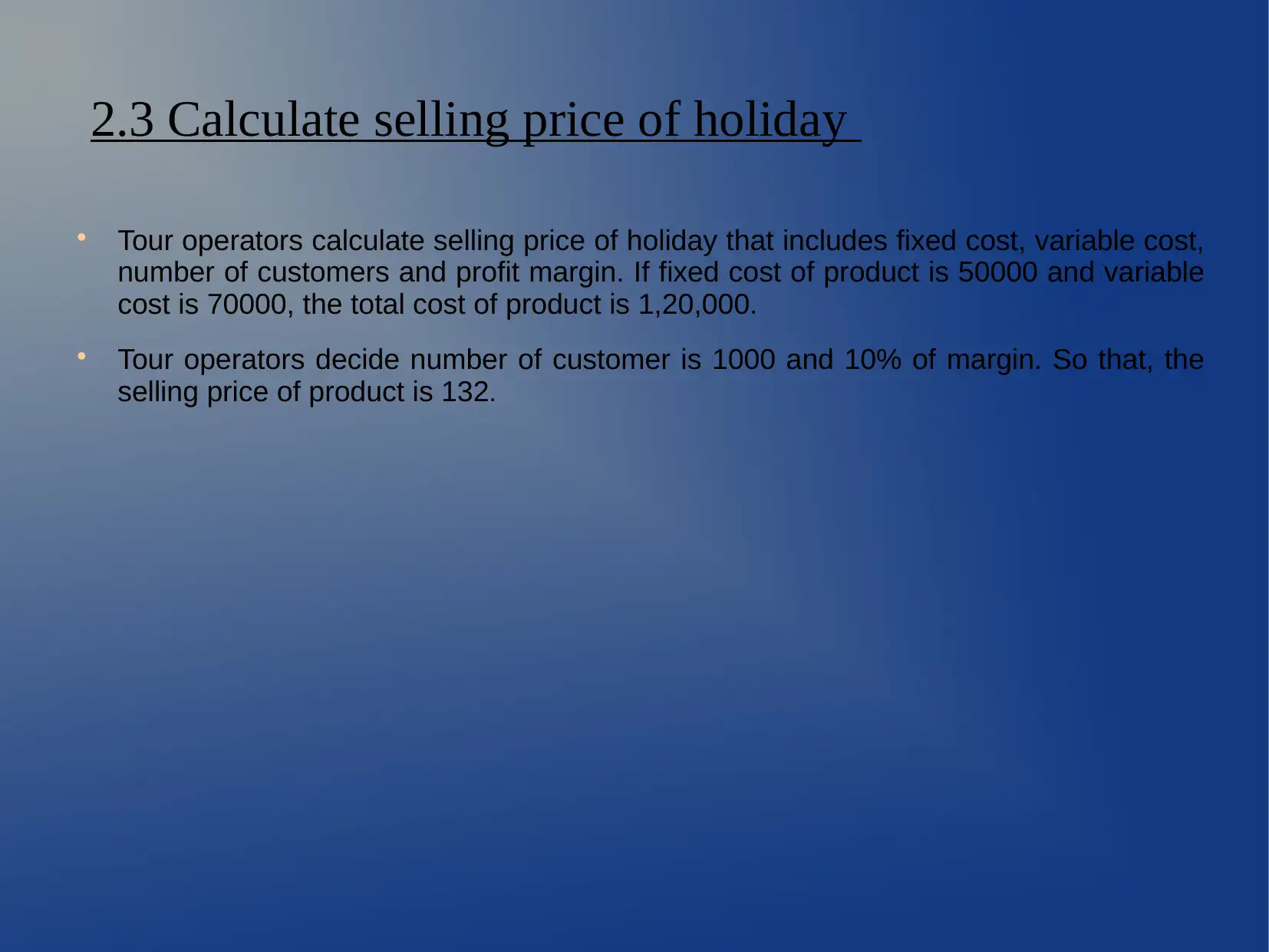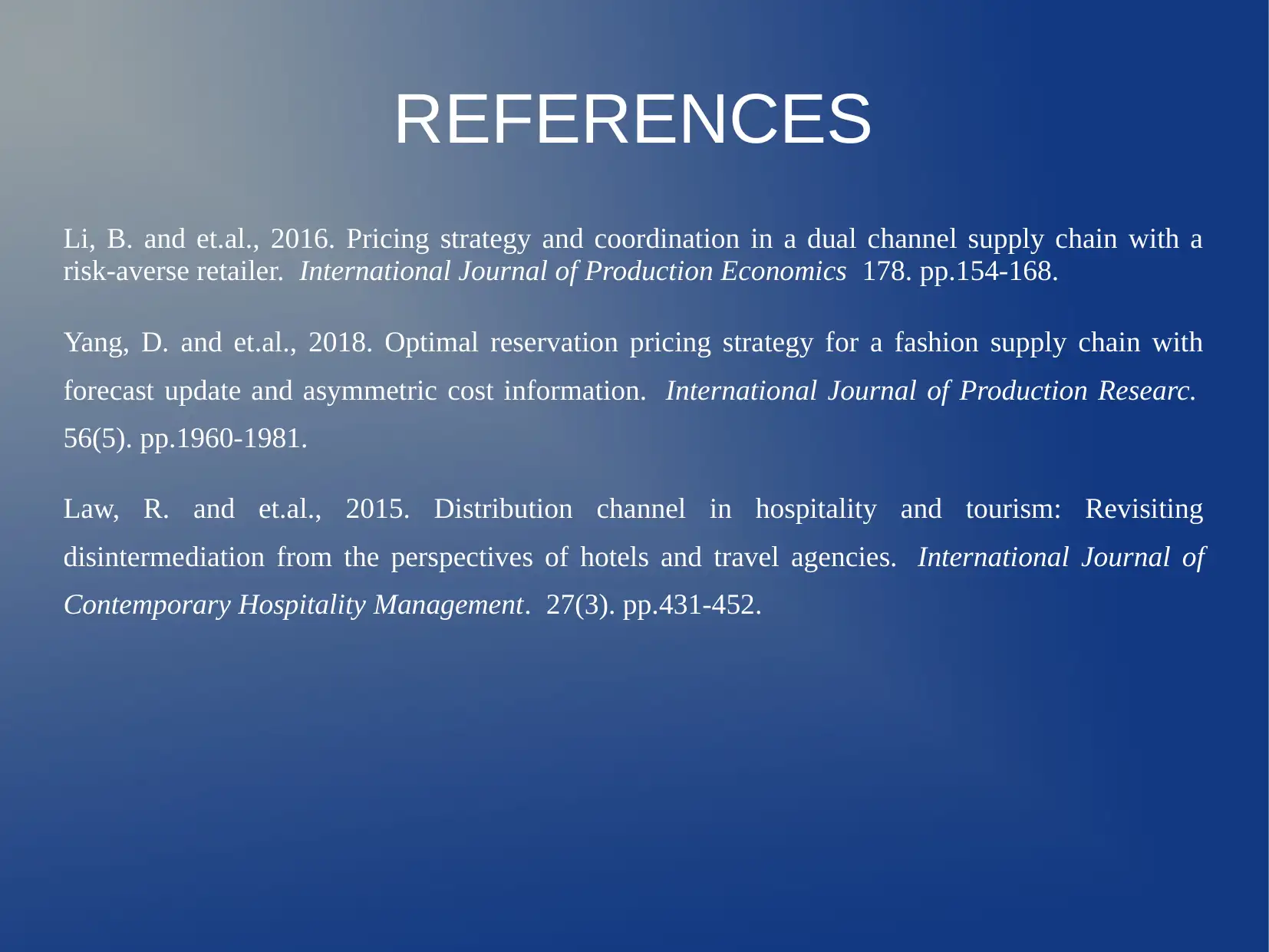HND in Hospitality Management: Tour Operations Management Report
VerifiedAdded on 2023/02/03
|6
|588
|87
Report
AI Summary
This report examines tour operations management, specifically focusing on the stages and timescales involved in developing holidays, as practiced by LCB tour operators. It details the importance of market research in understanding customer demand and competitor analysis, followed by the planning and scheduling of destinations, hotels, and dates. The report also covers the costing of holidays, including fixed and variable costs. Furthermore, it explores different contracting methods used by tour operators, such as allocation contracts, and their negotiation processes. Finally, the report includes a calculation of the selling price of a holiday, considering fixed costs, variable costs, the number of customers, and profit margins. The references provided support the strategies and methods discussed in the report.
1 out of 6













![[object Object]](/_next/static/media/star-bottom.7253800d.svg)